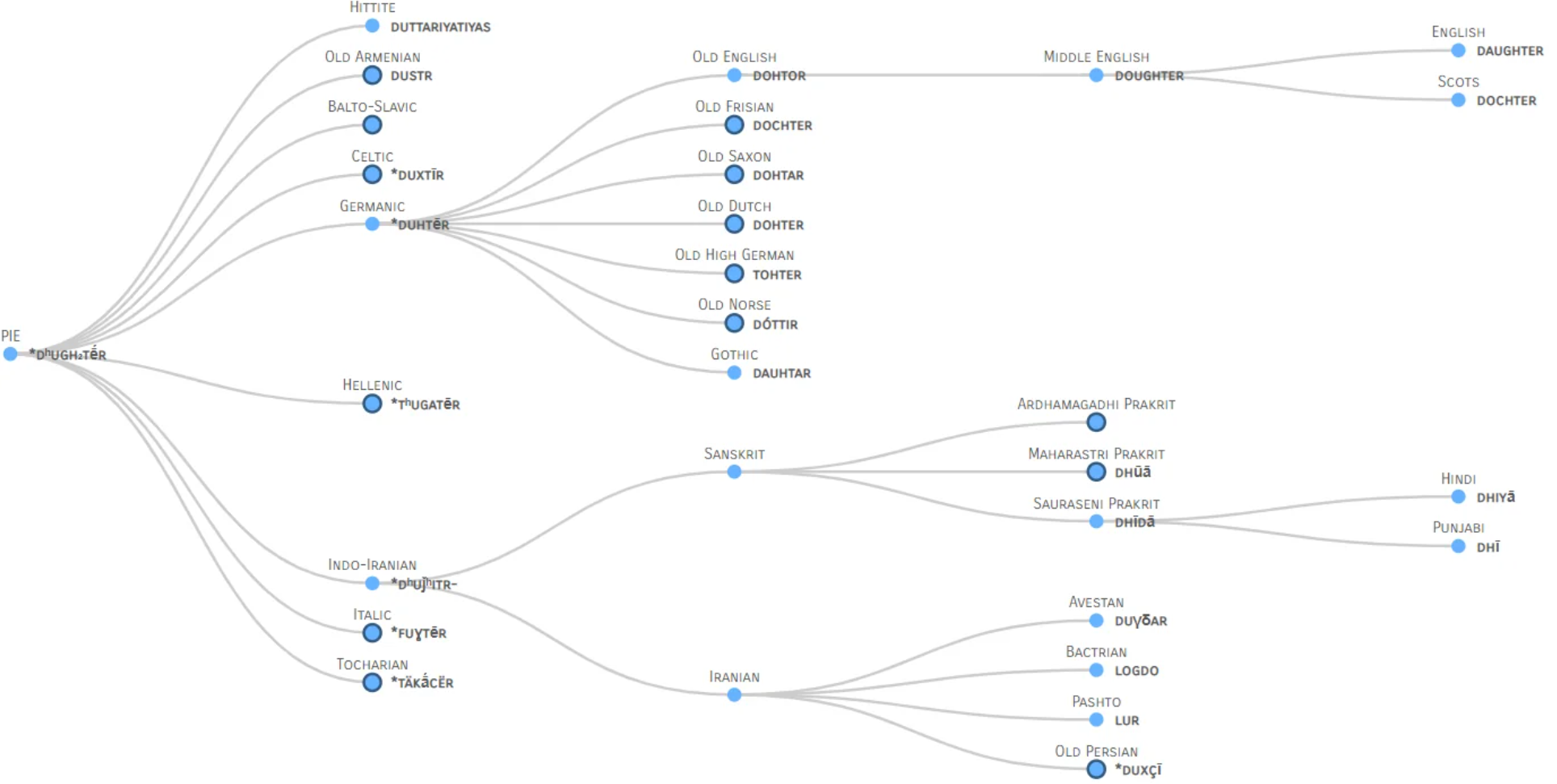Is there a web site where I can directly search for all English cognates of a German word?
Currently, I am using a combination of EtymOnline, Wiktionary and DWDS (Digitales Wörterbuch der deutschen Sprache), but I have to dig inside the content and I don't always get the result.
The ideal solution is to see the word evolution in a clickable tree where you can go back and forward in the history in different languages, something like this:
but a plain text tool connecting only German and English is also acceptable :)
I don't think that Is there a website that can list the English cognates of German words?, however sounding similar, gives exactly what I am asking for, however close it is to it. I'd really find useful something more easily searchable.
N.B.
Someone might object that knowing the cognates is not very useful in learning the vocabulary, however I find it highly helpful. Thanks to knowing the cognates I am able to learn the romance languages much faster, in spite of many false friends. The same applies to German and English.
We remember much more if any new piece of information is connected to other pieces which are already in our head, even if we have to add to some connections the "false friend" label. Using the cognates I even remember better the conjugation of irregular verbs, e.g. without knowing drink-drank-drunk I would have hardly remember trinken-trank-getrunken.

